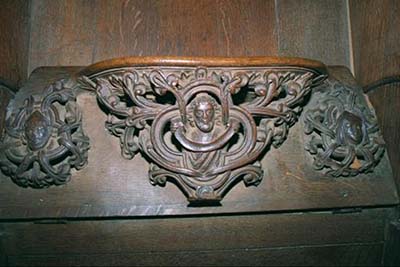Jon can speak for himself. As for me, I’ve never, not once, not in a thousand posts on BioLogos or anywhere else, asked how God “providentially” governs evolution. I’ve asked:
- Whether God governs the outcomes of evolution;
- Whether that governance includes the divine foredetermination (not merely divine foreknowledge) of all the outcomes of evolution, only some of the outcomes of evolution, or none of the outcomes of evolution.
I have asked this of every TE/EC leader that I’ve been able to personally converse with. None of them will answer.
Their usual dodge is that science cannot answer the question. But I have never demanded a scientific answer, only a personal opinion, speaking as a “whole person” not specifically as a scientist.
I have wanted nothing more than a simple survey-type answer, and not one TE/EC leader will give it.
If I asked the TE/EC leaders whether they thought there were abominable snowmen, they would not hesitate to give me their opinion. If I asked them whether they thought that polytheism was true, they would not hesitate to give me their opinion. If I asked them whether the doctrine of the Trinity was true, they would not hesitate to to give their opinion (even though they wouldn’t have any better idea how the Trinity works than how God’s providence works!). But if I ask them whether God determined (not merely predicted, but determined, i.e., willed, guaranteed, compelled the outcome) that evolution should produce elephants, or platypuses, or men with five fingers instead of six, every single one of them clams up, or answers the question with a question, or otherwise dodges the question.
There is nothing tricky or sneaky in the question. It involves no scientific judgments, no endorsement of ID, no endorsement of natural theology, no denial of evolution or of any particular evolutionary mechanism. I just want to hear individual TE/EC leaders’ personal opinion whether God determines some, all, or no evolutionary outcomes. I see no valid reason for any of them to dodge the question, given that they are not being asked for proof, not being asked to tie their professional scientific reputation to their answer, and will be allowed to revise their answer 24 hours later if they change their mind. There is no obligation, no trick, no trap, simply a natural question that a normal person might ask (and indeed, many normal churchgoing people do ask, even if TE/EC leaders in their presumptuous intellectual superiority think those average churchgoers are silly for asking it) about God and the evolutionary process. But the TEs in BioLogos and the ASA treat the question as some kind of insidious Fifth Column for ID or creationism which must be repulsed.
If Frances Collins can say, not speaking as a scientist, “I believe that God is Three Persons in One”, I don’t see why Dennis Venema can’t say, not speaking as a scientist, whether or not he thinks God determines all the outcomes of evolution, or leaves some or all of them “open” (to “nature’s freedom” or whatever else).
John Polkinghorne, in his writings, answers the question clearly enough. So does Ken Miller. But Haarsma, Applegate, Falk, Giberson, Isaac, etc.? When I’ve asked them, it’s wiggle and squirm city.
The joke is that they all claim to be so “Biblical”. Well, the Bible shows God as determining (not merely foreknowing) all kinds of very specific outcomes in the lives of individuals and nations; in some cases even the moral decisions, as e.g., when he hardens the heart of Pharaoh. (Yes, I know the verb is passive in most cases, but in one it’s pointedly active.) If the TEs can swallow God determining the hardening of the heart of Pharaoh, Judas’s betrayal, the boy born blind, etc., why can’t they swallow God guaranteeing the emergence of elephants, or man rather than an intelligent octopus? Or maybe they do accept God’s determination at that level of detail; but if they do, then why the caginess and evasion? Why not just say it?
I can think of no good reason for withholding an opinion which commits someone to no scientific conclusions, and is totally revisable, unless the person withholding the opinion has something to hide. But maybe there is some other explanation. If so, I’d like to hear it. But rather than giving excuses for why they shouldn’t have to answer the question, I’d rather they just answered the question.
